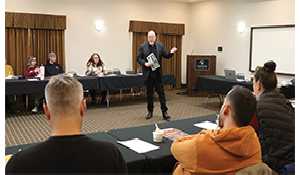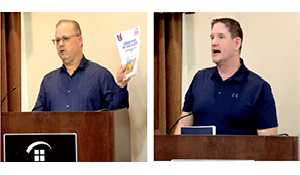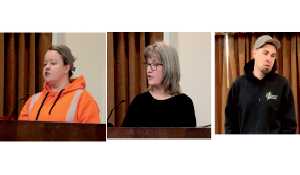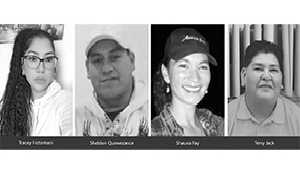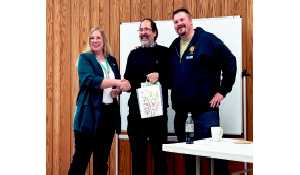New law to ease accessibility
November 23, 2022, 9:19 am
Sierra D'Souza Butts, Local Journalism Initiative Reporter


The Government of Saskatchewan has introduced new legislation—The Accessible Saskatchewan Act— to help prevent and overcome any accessibility issues for people with disabilities, in regards to built environments, information and communications, employment, transportation, service animals, procurement and service delivery.
“In 2015 the government came out with the Disability Strategy and this is a major piece of that,” Social Services Minister Gene Makowsky told the World-Spectator in an interview on Friday.
“We’ve brought together several different ministries to work on this, but also consultation with the disability community. We felt this legislation was needed by our outreach and what we’re hearing. This is a result of that and a big piece of our 10 year strategy we brought forward in 2015.”
Makowsky explained how The Accessible Saskatchewan Act will help people with disabilities live more comfortably across Saskatchewan.
“This act will help prevention at the front end, but also dealing with situations as they arise as well,” said Makowsky.
“There is already legislation out there on some of the barriers that are there with the building codes, with human rights codes, etc., but this will hopefully fill some of those gaps.
“We want to have a piece of this legislation be on the education side to prevent some of those barriers, to get people to think about those barriers that are out there, but also deal with those things as they arise in the future.
“There was no specific legislation prior, this is enabling legislation. It allows us to come up with regulations, that’s where the details will come out as we move forward, and we’ll continue to consult with the sector.
“With consultation, we decided with the built environments, information and communications, service delivery, procurement, service animals, employment, and transportation. Those were identified as some of the gaps that the other legislation hasn’t addressed, which we’ll begin to work on those with the regulations in the next little while here.
“With the government being first in trying to fill some of the gaps that are out there or may come up in the future.”
The act also makes it easier for a person with a disability to make a request to have a place become more accessible to their needs.
“What the legislation calls for is to have that accessibility office that the ministry will staff with a certain amount of issues as they come up,” he said.
“The idea is that education will be at the front of all this to have third parties, like governments, Crowns, or eventually down the road, private businesses understand the barriers that are there and work with them to try and prevent that. My understanding from previously is that anyone who had a barrier had to go through the Human Rights Tribunal and that would take a certain amount of time to process.
“Hopefully this will smooth things out and we can compile all the complaints that are out there within that office within our ministry.”
An Accessibility Advisory Committee will be appointed, with at least half of the members being persons with disabilities or from organizations that represent people with disabilities. This committee will advise government on the development of accessibility standards.
“This act will need to go through the legislature,” he said.
“We just did a second reading, we’ll have a chance for the opposition to scrutinize any bill that goes through. Then hopefully in the spring, we’ll be able to pass it.”


